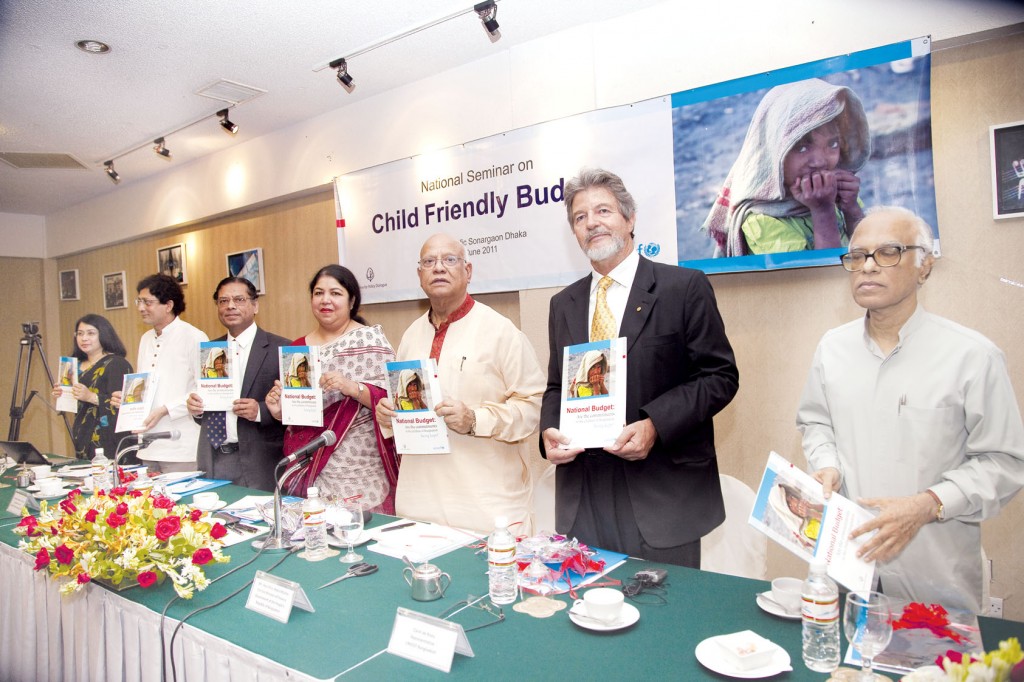UNICEF Bangladesh and CPD jointly organised a seminar to launch the study report titled National Budget: Are the Commitments to the Children of Bangladesh being Kept? on 26 June 2011 at Pan Pacific Sonargaon Hotel, Dhaka. The report is the outcome of a study on the above mentioned subject conducted by CPD in collaboration with UNICEF based on the analysis of national budgets of Bangladesh since 2005. The study estimated that the total budget directly allocated for children, including allocations for children’s social safety net programmes, amounted to a mere 4.1 per cent of the national budget for FY2010-11 and it was equivalent to 0.7 per cent of the GDP. The study also revealed that despite substantial increase in the total budget in the last couple of years, share of children’s budget in the GDP has remained more or less unchanged. Mr A M A Muhith, MP, Hon’ble Minister for Finance, who was present as the Chief Guest of the seminar, however, held a somewhat different view. He felt that if parent-oriented programmes and social investment in sectors such as social welfare, nutrition, health and education are considered, allocation for children would be more than the estimated amount.
Dr Shirin Sharmin Chaudhury, MP, Hon’ble State Minister for Women and Children Affairs was the Special Guest of the event whilst Professor Wahiduddin Mahmud, Former Advisor to the Caretaker Government; and Professor Abul Barkat, President, Bangladesh Economic Association (BEA) were the Guests of Honour. Dr Fahmida Khatun, Head of Research, CPD, who was the lead researcher of this study, presented the keynote paper. CPD Executive Director Professor Mustafizur Rahman chaired the event. Experts present at the dialogue highlighted the need to announce a child-friendly budget considering that almost half the population of the country are children and 31 per cent of them live below the poverty threshold. They mentioned that 3.3 million children of Bangladesh are growing up in slums, and child poverty severely limits children’s opportunities to be developed with full potential. They stressed the need for higher allocation for the programmes that are directly or indirectly benefiting children. The study recommended to develop a ‘pro-child budget’ framework to assist the government to realise its commitments already made towards children by allocating resources to programmes directly benefiting children. It also stressed the need to increase investment for children in a sustainable manner to reduce socio-economic inequalities and break the prevailing inter-generational poverty cycle as a prerequisite for realising the MDGs and the government’s Vision 2021.


